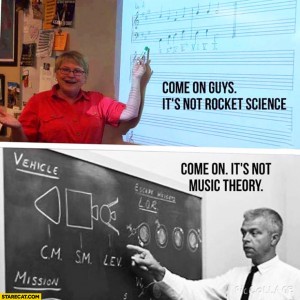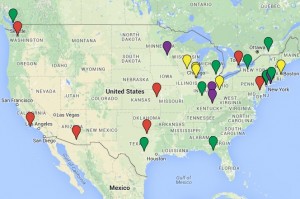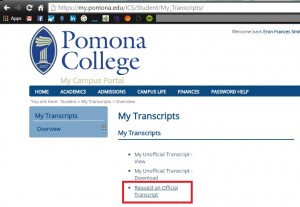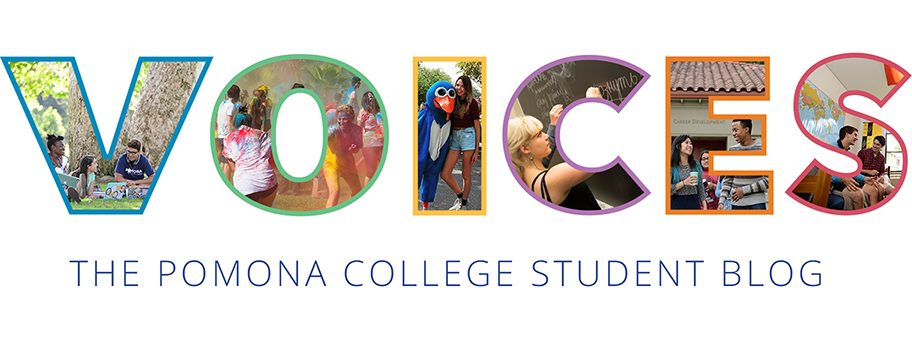“Goodbye! We love you! Safe travels! See you at graduation!”
This is how my grandparents saw me off after our winter visit together. There’s really not much use denying it any more: I will (hopefully) be graduating from college in 2016. It’s a pretty chilling feeling to watch the ball drop on a new year that matches your “Class of.” As I’ve written somewhat melodramatically in previous posts, this is a big year for the seniors. We’re applying for jobs, fellowships, med/law schools, and graduate schools, and everyone responds to this differently — from “300% done with school rn” to “nuuuuuuu.” The Claremont Colleges are about to start the spring semester: my eighth. Some junior friends have already gone abroad, meaning that I won’t see them at least until I am a Pomona alum. I’m doing a great job of not thinking about that.
For me, though, this educational end feels less like a series finale and more like a season finale. Or the conclusion of Star Wars: Episode VII. No spoilers and no fandom needed — this is just a forced (hee!) way of explaining that although I’ve been through a lot of education so far, Pomona has been a great experience. An experience so great, in fact, that I’m making the highly questionable decision to go get MORE EDUCATION in perhaps one of the least employable fields that is also conveniently the love of my life: music theory!
Given how lost a lot of seniors feel, I figured I could save someone a little bit of trouble by reflecting on and describing my graduate school application process. Keep in mind that this is all my personal experience and I’m definitely not pretending to know everything about it, especially given I haven’t actually, y’know, gone to graduate school.
Step 1: Do I want to go to graduate school? + talk to professors
Here was the easiest step. I’ve been told throughout this process to make sure I want to go to graduate school for the right reason/s. From what I’ve been told by peers, professors, relatives, advisors, and alums, here are some good and

bad reasons.
- BAD: I don’t know what to do with my life.
- BAD: I want to be guaranteed a lucrative job.
- BAD: Someone told me to.
- BAD: I don’t want to pay my loans yet.
- BAD: I love undergrad so much I want to stay in college and keep having fun.
- GOOD: I really love this subject.
- GOOD: I would be happy doing nothing but this subject.
- GOOD: I thrive in an educational environment.
- GOOD: I am relatively sure about what I’m interested in.
- GOOD: Even if I don’t get the job I want, it will still have been worth it to get my degree.
After more reflection than my advisors probably thought I’d done, I eventually discovered the good reasons apply to me. Oh! And you should talk to your professors. What do they think you should think about? Why did they decide to go to graduate school?
Step 2: Do I want to go straight to graduate school? + talk to professors
Here’s where I was challenged the most by others. Everyone (with a couple notable exceptions) will tell you to take time off before graduate school, be it a year or several years. This is probably a good idea especially if some of the bad reasons from Step 1 apply to you. When your professors and peers and alums tell you it will be miserable to try and put together applications during senior fall (most applications are due in December), they are right. That doesn’t mean it’s wrong to do it, but it’s gonna suck.
I worry sometimes that my advisors think I ignored their advice when really it was crucial to my decision. I was strongly advised to wait, consider other options, and think about what things I might want to do in my youth (dramatic language, true sentiment). I did those things — or at least the latter two: I made lists of things I would love to do. I had no trouble coming up with those things: recording songwriting albums, road-tripping around the U.S., getting better at cheesemaking, hiking the Appalachian Trail… I began to realize that not only were all the things I’d do instead of grad school unaffordable for me, but that I preferred the idea of continuing my education even aside from the financial differences. All the alternatives to me sounded like things I would do just to postpone graduate school. So I talked to my professors about the reasons for wanting to go straight through, asked my advisors if they’d still be willing to write me letters, and I began the grind.

A piece of advice that proved very helpful: If you’re applying to graduate school in your senior fall, sign up for the number of courses you want to take and then pick one to sacrifice. You will need the extra time.
Step 3: Where do I want to apply? + talk to professors
Here’s where it’s easy to get stuck. I took a long time (i.e. until at least partway through October, I think) finalizing my list of schools to apply to. The undergraduate admissions process is very glitzy and very recruitment-oriented. As a high school student, I got zillions of fliers and pamphlets and emails and videos. Undergraduate admissions is a whirlwind of visits and tours and “here’s why you should come here” and admissions percentiles and campus pictures and, well, advertisement. I decided to come to Pomona after a hyper-organized, Excel-driven search through hundreds of school websites and romp across more than 10 campuses.
Graduate admissions has none of the glamour. No emails, no pamphlets, no “373 Best Music MAs/MMus/PhDs!” or “Music Theory Grad Programs That Change Lives” with smiling student testimonials (I would’ve paid a LOT for that book). My parents are in STEM fields, and most of my friends aren’t applying to grad school. My two main advisors are the only people I know who went to music theory graduate school, both over a decade ago. I was advised to look at the research interests of the people at each program, think about where I might want to be, and try to figure out who has funding(!!!). I narrowed down graduate schools exclusively using (1) a web search for programs and scholars with my research interests, (2) the home campuses of presenters at the Society for Music Theory conferences in the past three years, (3) the alma maters of professors who teach theory, and (4) much-needed advice from the music professors. Have I mentioned you should talk to your professors?
I ended up with a list of eight schools. I gather that people generally apply to between four and ten programs, but it depends on your field. I went up to eight mostly because the programs had a lot of overlap in admissions materials.
Step 4: What do I need to do to apply? + talk to professors

Here’s where I scoured lots of websites. What are you going to have to send to the schools? Are you applying for a Master’s or a Ph.D. (or in my case, some of each)? What tests do you need? What writing samples do you need and how long are they? In my case, some schools said at least one paper of “8 pages minimum” and some said “20 pages on this particular type of topic” and some said “two research papers.” I started missing the CommonApp around this time. How many recommendations? How long are the personal statements? What existing work can you use on this application to reduce your class workload? **WHEN ARE THE DEADLINES?** ← very important.
Some programs will be clearer than others about what you need to prepare. Having a head start really helps: I took the GRE in August before the fall semester started, and I had one writing sample to start with thanks to an awesome independent study from junior spring. Oh, and talk to your professors, who can really help you figure out what a program may be expecting.
Step 5: Just apply already + talk to professors

Here’s where you check the exact hour of the deadlines. My biggest regret this fall was how late I actually started the application forms. Every single application will have its own online form and very different format. There will be at least one surprise application document (like a diversity statement, an extra type of CV, etc.) when you open the online form. Some of my programs required three different applications (for the university, the School of Music, and the music theory department). Some don’t make it clear if you’re checking Master’s, Ph.D., or both. Some sites will go down, or force you to use a different browser due to a logout error, or send you emails about what other programs are available to apply to (euphonium performance??).
So my two cents about putting together an actual application (note, again, that I haven’t yet been accepted or rejected anywhere): Start it as early as possible. Talk to your professors early about the recommendations and politely remind them within a week of the deadline. Perfection is the enemy of done. Take your personal statements and CV to the Career Development Office; they are very helpful and have a lot of experience with that sort of thing. And be prepared to be extremely frustrated with the web forms, which can be redundant and which suck up impressive amounts of time that you probably wanted to spend sleeping or working on homework for — oh right! — your other classes. Five of my eight deadlines were on December 1st, and all of those went in that day or the day before. 0/10; would not recommend doing that. My recommenders were very patient with me.

Another consideration to keep in mind: Grad school applications are ridiculously expensive. Taking the GRE costs almost 200 dollars, and sending my scores cost more than that. The application fees are all over 50, and for some of them it’s over 100 plus an additional fee for the university overall. Again, I’m privileged to be able to just complain about these costs instead of them being prohibitive, but it’s something to keep in mind. Some programs also require an interview for admission, and may not pay for your plane ticket.
Step 6: Interview? + talk to professors you haven’t met yet
Here’s where I am now. Interviews depend a lot on your field, from what I can tell from a phriend applying to physics programs. I’ve been invited to interview for both programs that require it out of my eight applications, both in January. By the time this blog post goes up, I’ll likely have been to one of them, interviewing with new professors and taking aural skills exams for potential assistantships. In late January, I’ll have to miss two days of class for my second interview. This is all very exciting and validating, but also terrifying — at one program, I’ll be interviewing individually with four different professors, and at the other I’ll have three different skill tests. I also don’t know how close an interview weekend is to acceptance. My Pomona professors are giving me helpful tips, and I’m mostly just glad to be seeing some of the campuses rather than the impersonally familiar webpages. The excitement of learning about the programs is refreshing and reminds me why I wanted to go through all of this.
Step 7: Wait to see where/if I get in
Here’s what’s coming this spring. After the chaotic and frankly sometimes miserable application process, it’s time for me to hold my breath and wait. That can be pretty scary, especially since some seniors already have jobs lined up for them, having applied in one of the early cycles in the fall. Just like with undergraduate schools, I’ll be waiting until late February and late March to see where I’m admitted, where I can afford to go, and what program/s I like best. In April, I’ll make a huge life decision. In May, I’ll graduate from college (and see my grandparents again!). This summer, I’ll move somewhere across the country. In the midst of all of it, I’ll be enjoying the end of this adventure, finishing up my time at Pomona with some excellent courses, new life firsts, beautiful music, academic challenges, and fun social activities. As I type, I’m enjoying a much-needed holiday break.
If you decide to apply to graduate school while in college, my advice so far is to do it for the right reasons, talk to people you respect, remember the endgame, cry as much as you need to, and find at least one friend who’s doing it too to commiserate with. It won’t be easy — a good education never is — but taking care of yourself comes first. Every Pomona student is different, and the way you use your education needs to be yours.
